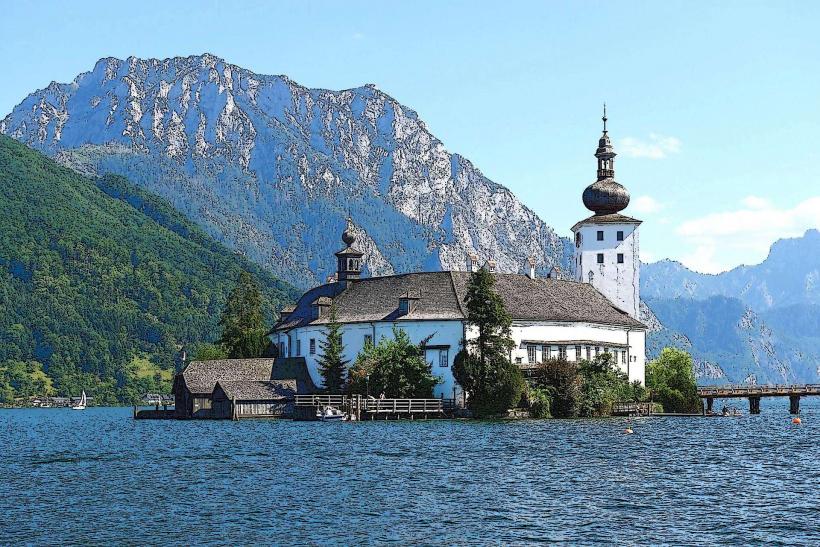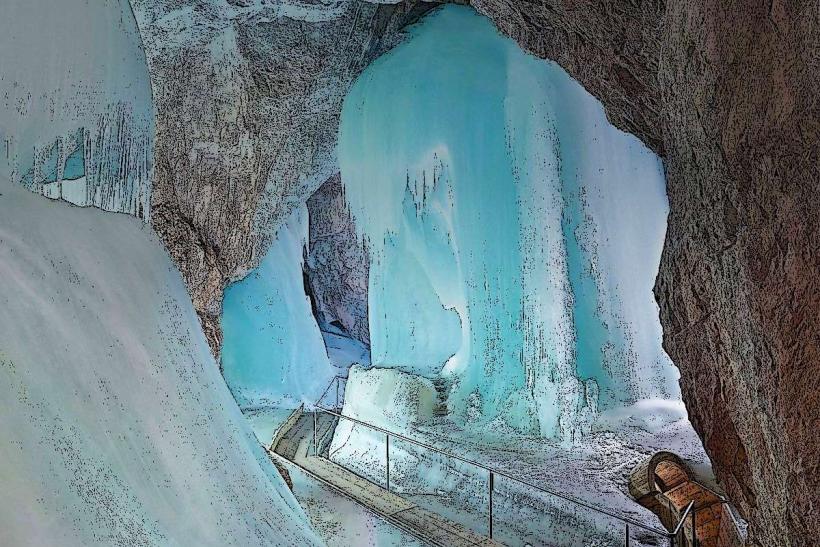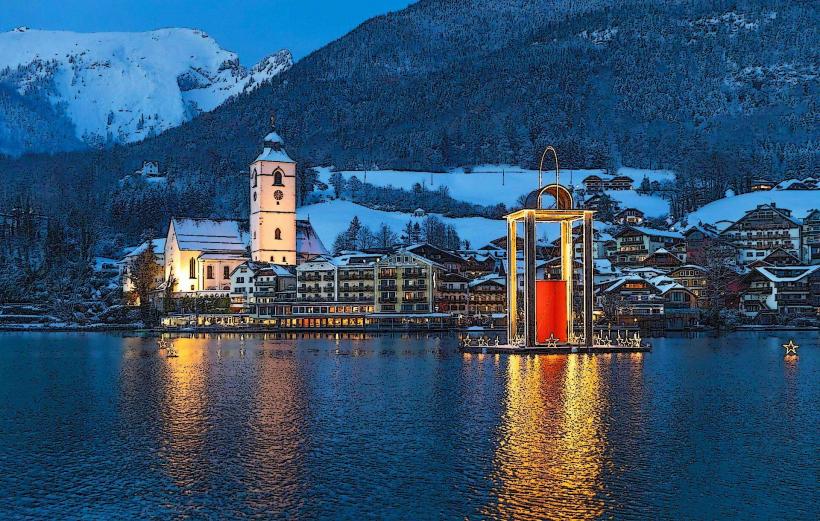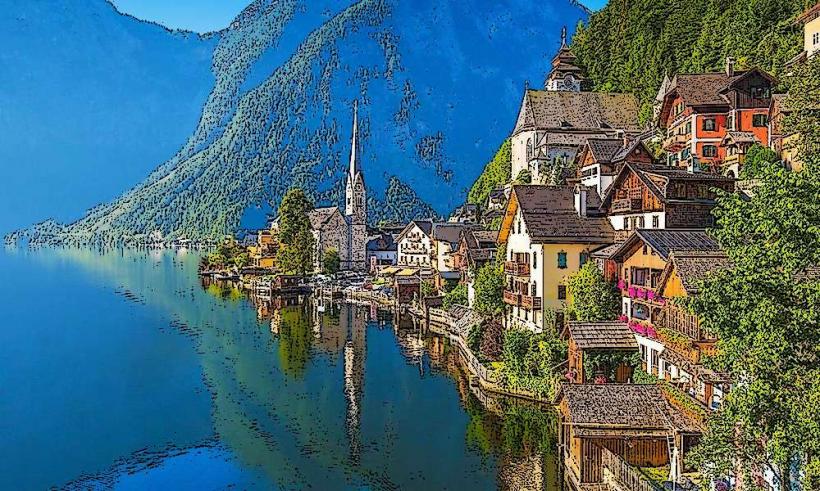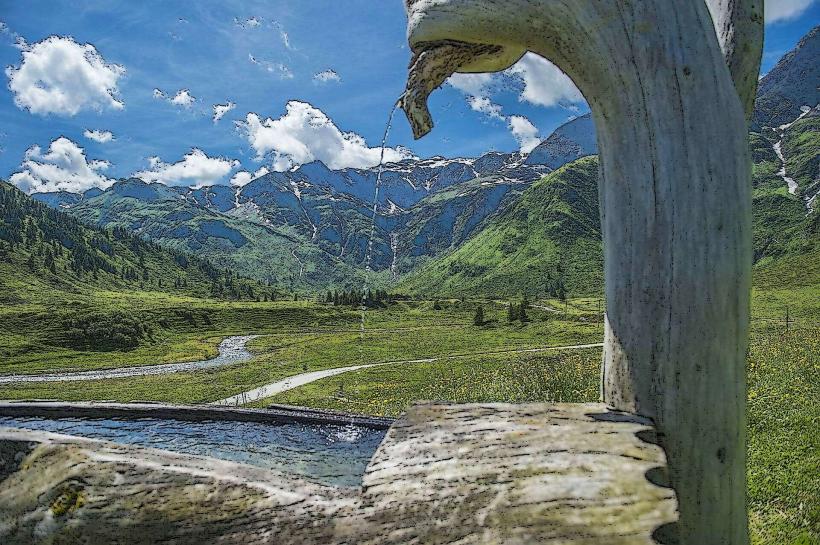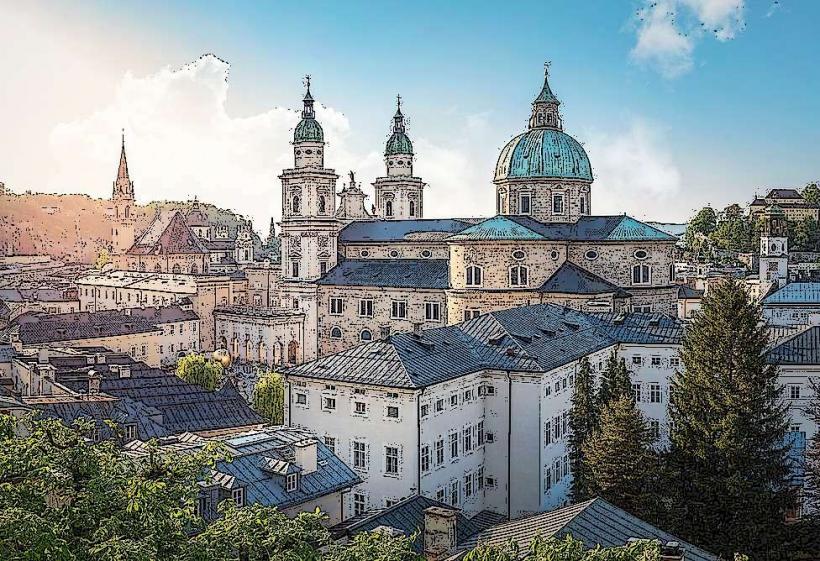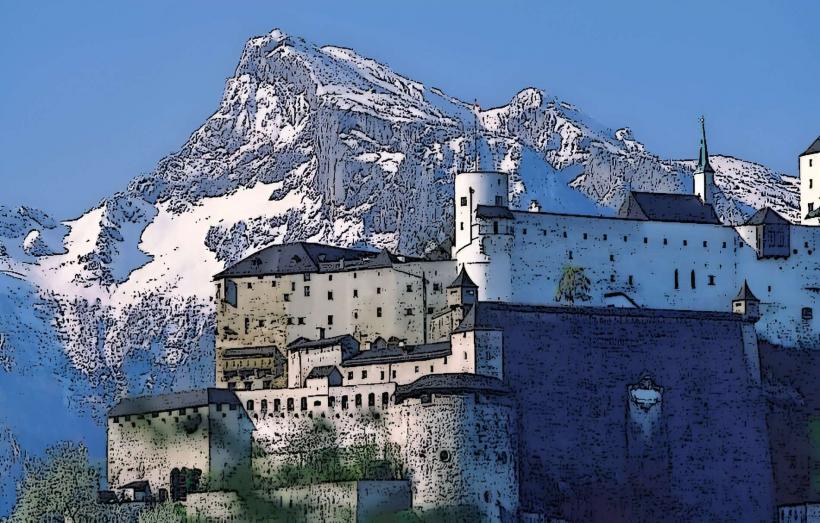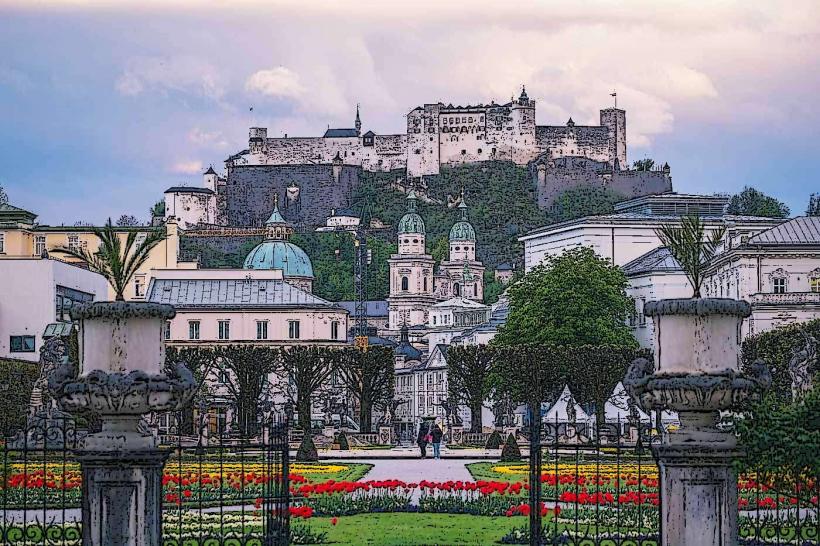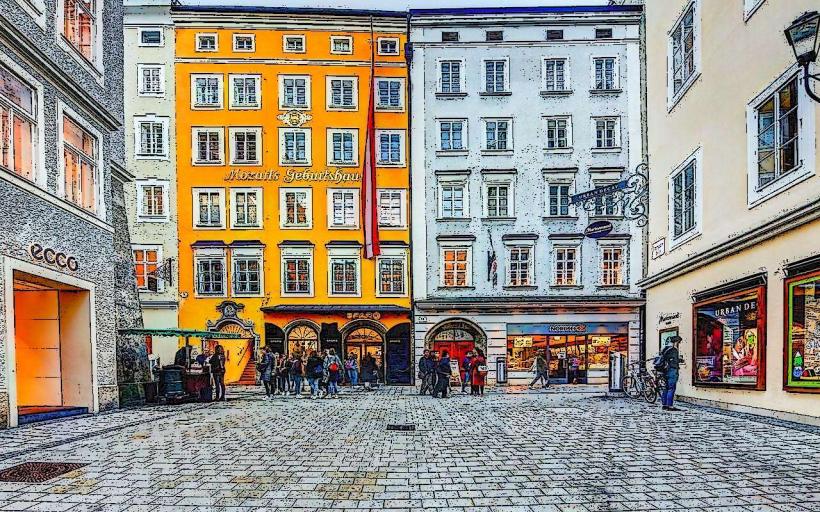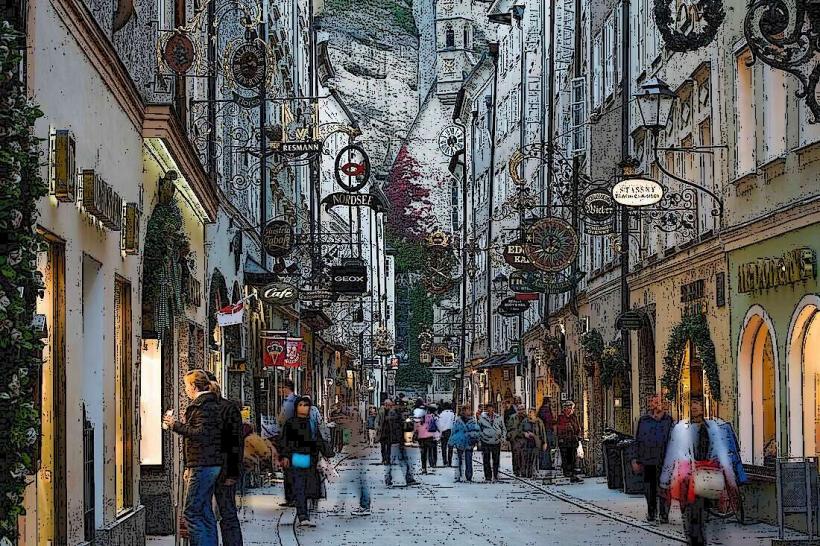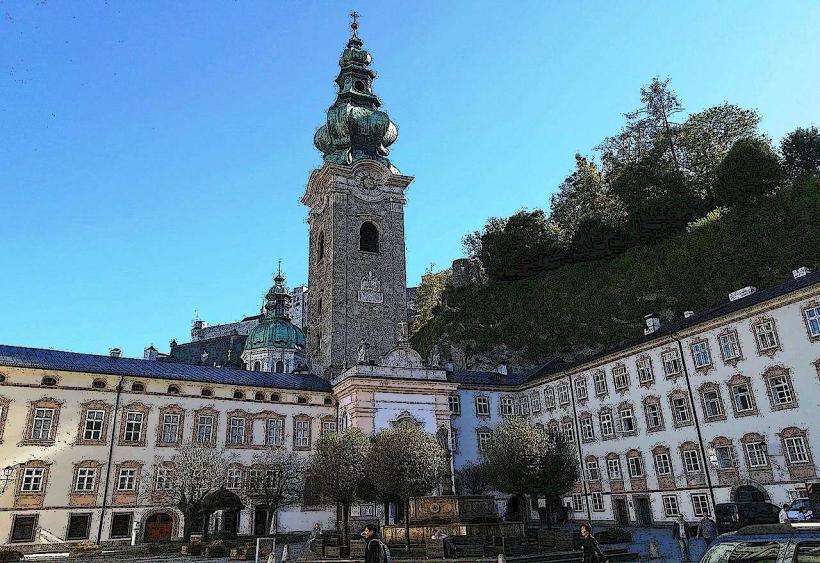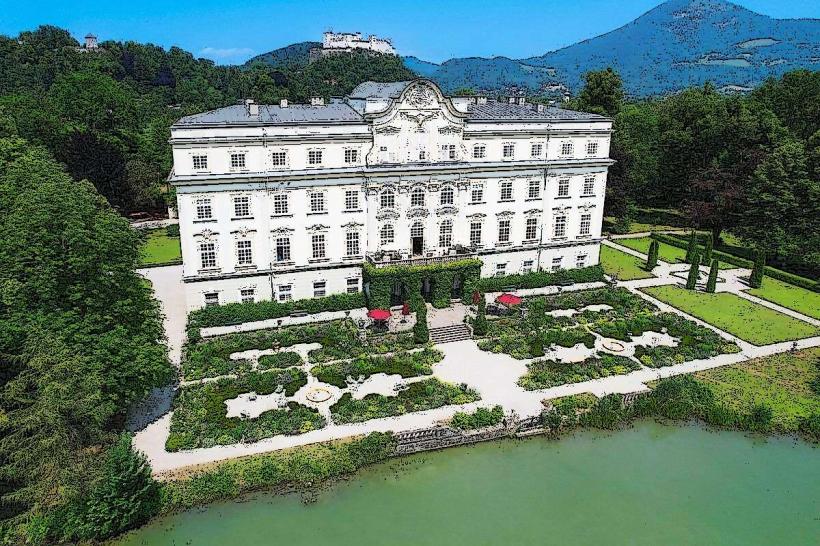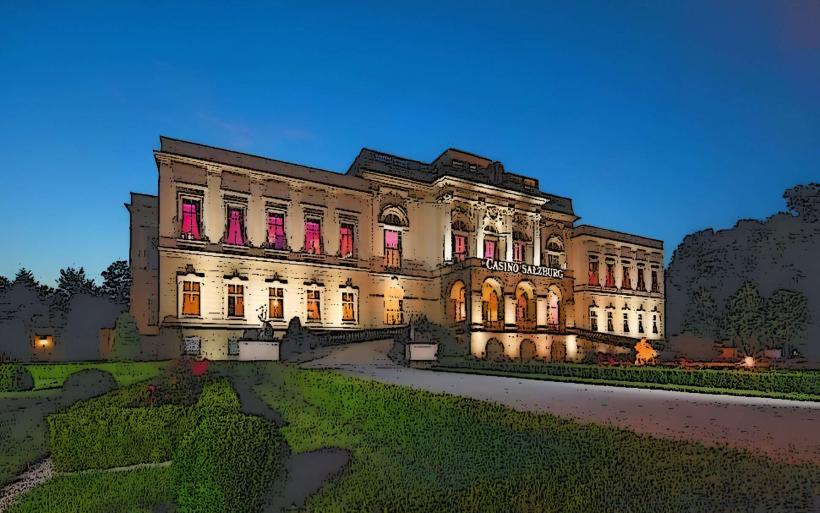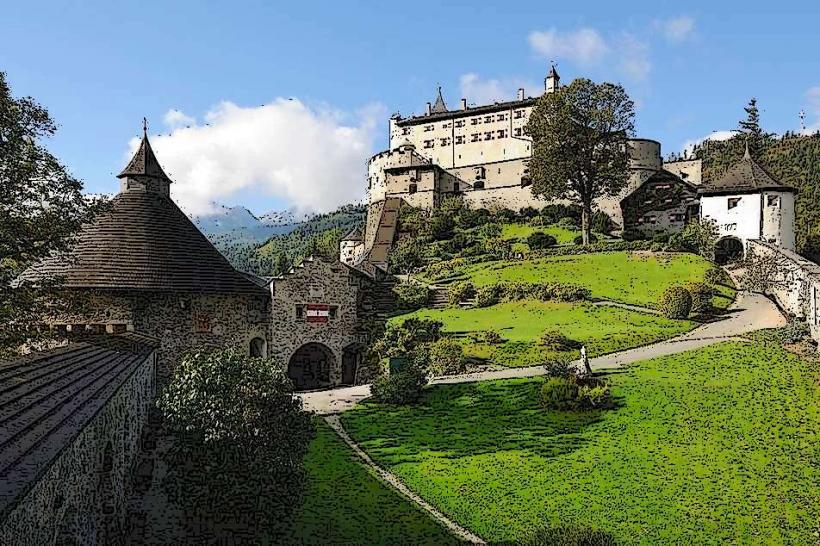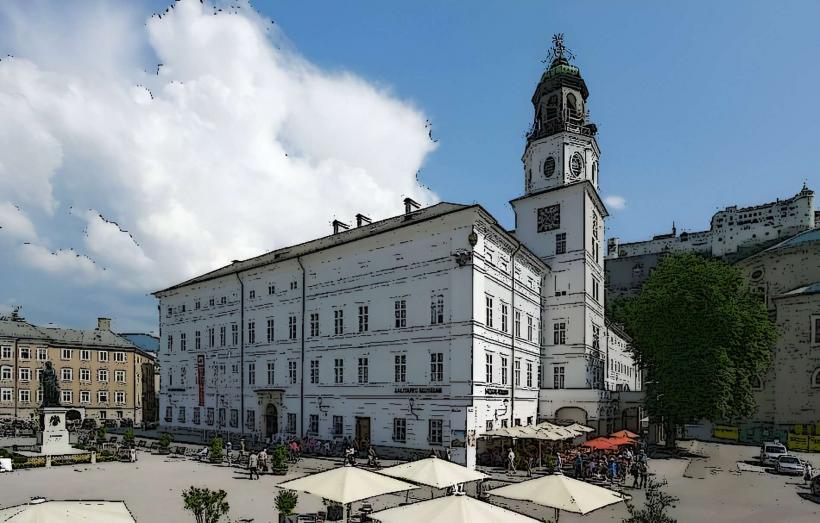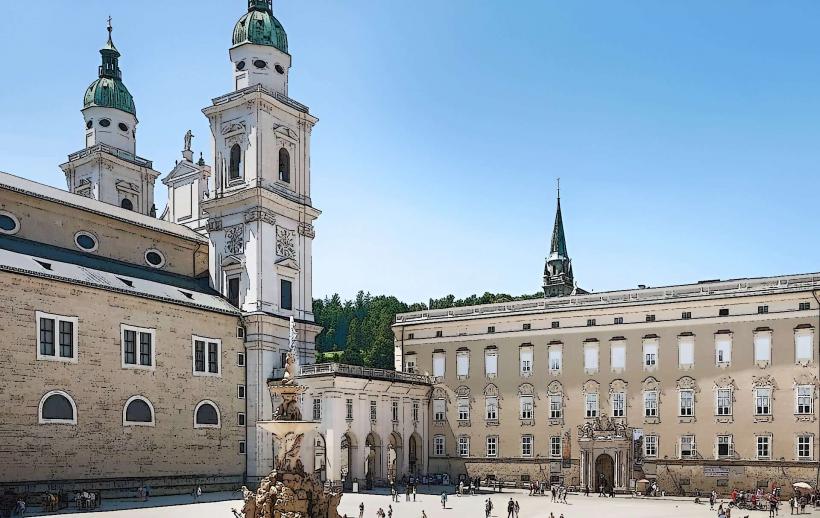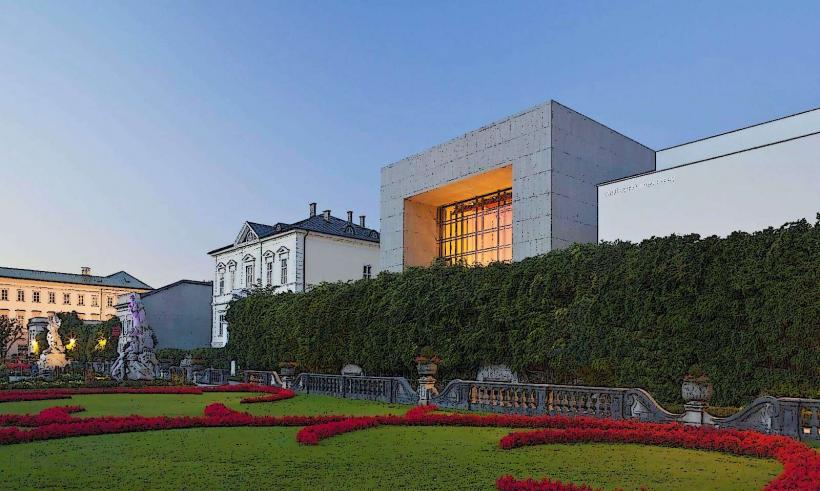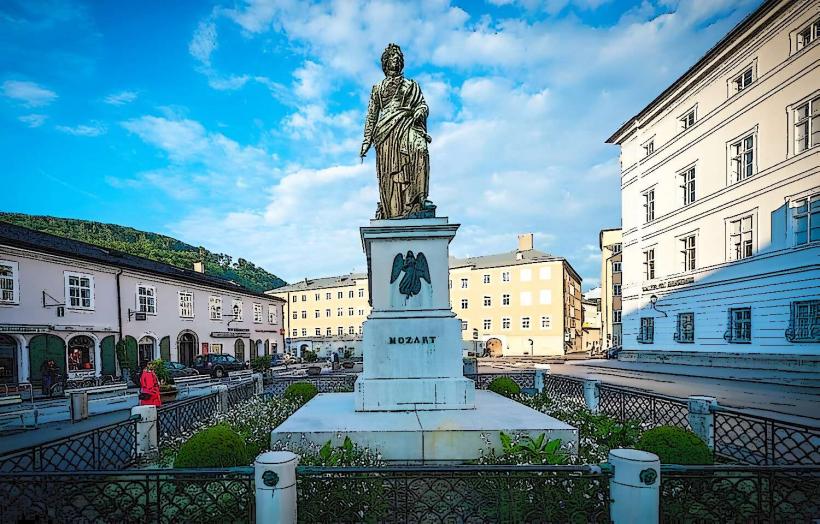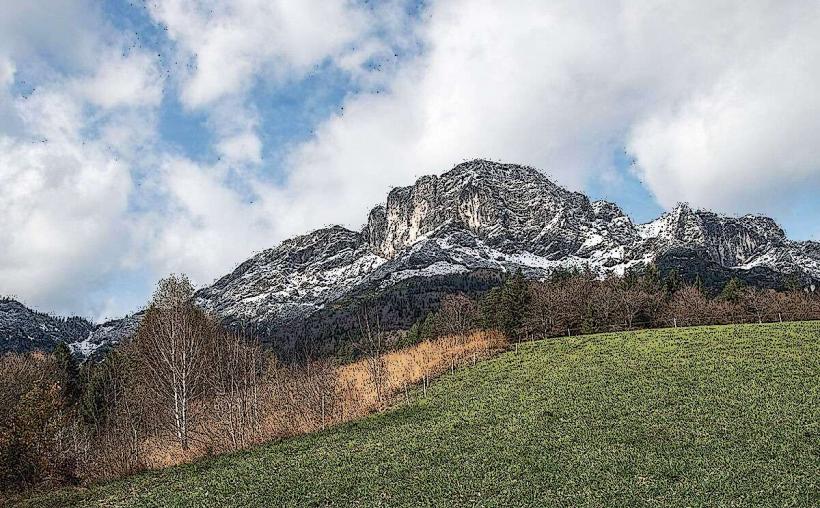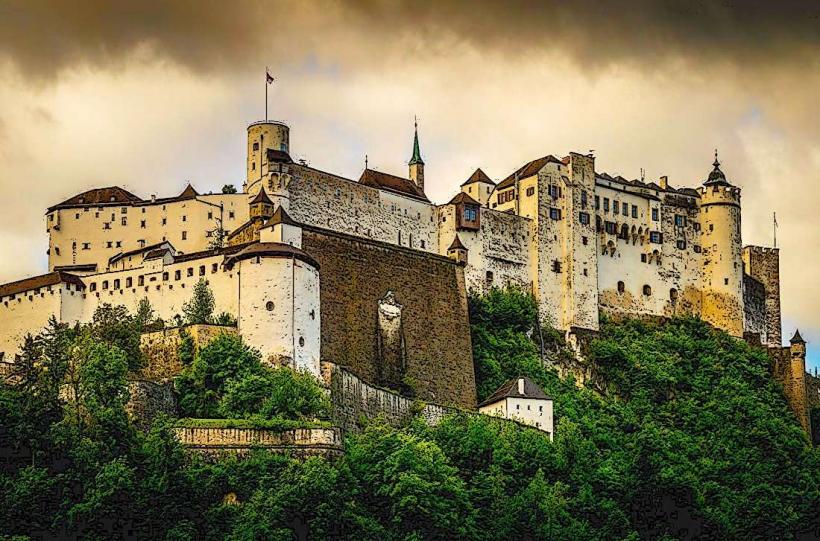Information
Landmark: Hellbrunn Palace and Trick FountainsCity: Salzburg
Country: Austria
Continent: Europe
Hellbrunn Palace and Trick Fountains, Salzburg, Austria, Europe
Hellbrunn Palace and Trick Fountains – A Royal Retreat with Surprises
Hellbrunn Palace (Schloss Hellbrunn) is one of the most fascinating attractions in Salzburg, Austria, known for its stunning Baroque architecture, beautiful parklands, and the famous Trick Fountains that have delighted visitors for centuries. Located just a short distance from the city center, this palace offers a unique blend of royal luxury, clever engineering, and playful surprises.
Overview
- Location: Hellbrunnerstrasse 41, 5020 Salzburg, Austria
- Built: Construction began in 1613 under Prince-Archbishop Markus Sitticus
- Architectural Style: Baroque, with influence from the Renaissance
- Key Features: Trick Fountains, extensive gardens, and a palace with historical significance
- Famous For: The Trick Fountains, beautiful parkland, and being a summer residence for the Prince-Archbishops of Salzburg
Historical Background
Construction of Hellbrunn Palace:
- Hellbrunn Palace was commissioned by Prince-Archbishop Markus Sitticus in the early 17th century as a summer residence. Sitticus, who was known for his love of entertainment and innovation, designed the palace as a place to entertain guests, combining Baroque architecture with whimsical features that would surprise and amuse visitors.
- The palace was built on the outskirts of Salzburg, offering an elegant yet playful retreat from the formality of the city. The surrounding gardens were designed to create a sense of wonder and surprise, which was achieved with the famous Trick Fountains.
The Trick Fountains:
- The most famous feature of Hellbrunn Palace is the Trick Fountains. These fountains were designed by Giovanni Vigerio, a Venetian engineer, and were built to entertain guests with ingenious water tricks that would unexpectedly spray water on them.
- The fountains are considered one of the earliest examples of water-powered fun in the world, combining water engineering with playful surprises. They reflect the eccentricity and imagination of Prince-Archbishop Markus Sitticus.
A History of Fun and Leisure:
- Hellbrunn’s design was meant to provide a break from the seriousness of court life, offering spaces for socializing, games, and amusement. Visitors could enjoy the palace’s stunning gardens while experiencing the clever water tricks that were, and still are, a major attraction.
Key Attractions at Hellbrunn Palace
1. The Trick Fountains
The Trick Fountains are the heart of Hellbrunn Palace and one of the most unique attractions in Salzburg. The fountains are spread throughout the extensive grounds and include features like hidden jets, sprinkling seats, and water-powered automata.
Some highlights of the Trick Fountains include:
- The “Sitting Area” Fountain: A group of benches where unsuspecting visitors may find themselves unexpectedly doused with water.
- The “Puppet Show Fountain”: A fountain that features a puppet show that is powered by water.
- The “Wild Man Fountain”: A sculpture of a wild man that squirts water unexpectedly when visitors approach.
- The “Grottos”: Hidden grottoes with stone carvings, where water jets surprise visitors as they walk through.
The fountains operate through an elaborate system of waterworks, with hidden pipes and trick mechanisms that use gravity and clever engineering. The surprises are especially fun during the summer months when the fountains are in full operation.
2. Hellbrunn Palace and Interiors
- While the Trick Fountains are the main attraction, the palace itself is also worth visiting. The Baroque-style palace features an elegant yet simple design with rooms that are carefully furnished in the period style.
- Visitors can take a tour of the palace’s state rooms, guest chambers, and salons, which showcase the lavish lifestyle of the 17th-century Salzburg court.
- The palace also houses a small museum where visitors can learn more about its history, architecture, and the Prince-Archbishops who resided there.
3. The Gardens and Parklands
- The gardens of Hellbrunn Palace are expansive and meticulously maintained. The formal gardens are beautifully laid out with symmetry, with hedges, flowers, and well-placed statues enhancing the atmosphere of grandeur.
- In addition to the Trick Fountains, the gardens are home to beautiful walking paths, water features, and a man-made pond. Visitors can enjoy leisurely strolls through the lush parklands, which are ideal for photography, picnics, or just relaxing in the serene setting.
- The palace is also surrounded by a forest area, perfect for those looking to explore nature while visiting.
4. The Pavilion and the Marble Room
- Inside the palace grounds, visitors can also explore the Pavilion, a lovely space where Sitticus and his guests could enjoy music and social events.
- The Marble Room within the palace is particularly beautiful, known for its intricate marble decor, which includes marble tables, floors, and columns. This room was often used for formal gatherings and receptions.
The Hellbrunn Experience
- Guided Tours: Visitors to Hellbrunn Palace can take a guided tour of the palace and the Trick Fountains, where guides explain the history of the palace, its construction, and the fascinating water features. Some tours are interactive, allowing visitors to experience the fountains firsthand.
- Self-Guided Visits: If you prefer to explore at your own pace, you can take a self-guided tour of the grounds and gardens, though a guide will enhance the experience, especially with the fountains.
Visiting Information
Opening Hours
- Summer (April to October): Open daily, typically from 9:00 AM to 5:00 PM.
- Winter (November to March): The palace is generally closed during the winter months, though the park may remain open.
Admission Fees
- Entrance to the Trick Fountains and the Palace requires an admission fee, with discounts available for children, students, and groups.
- Combination tickets are available for those who want to explore both the Trick Fountains and the palace interiors.
Location
- Hellbrunn Palace is located approximately 5 km from the city center of Salzburg, making it easily accessible by bus, bike, or car. The bus number 25 from Salzburg’s main train station will take you to the palace.
Accessibility
- Hellbrunn Palace and its grounds are wheelchair accessible, with ramps and pathways that accommodate visitors with mobility challenges.
Fun Facts
The Trick Fountains’ Practical Use:
- While they were designed for amusement, the Trick Fountains were also practical in their original purpose. They helped cool down the palace grounds during the hot summer months, thanks to the water systems that ran through the area.
A Famous Filming Location:
- Hellbrunn Palace is also a famous location for filming. It was featured in "The Sound of Music", particularly in the scenes where the Von Trapp children played games in the garden.
The “Water Organ”:
- One of the more intriguing features of the Trick Fountains is the water organ, which plays music by using water-powered pipes. This combination of water technology and music is a testament to the ingenuity of the time.
Conclusion
Hellbrunn Palace is a captivating blend of Baroque elegance, playful water engineering, and historical significance. Whether you're marveling at the clever Trick Fountains, exploring the beautiful gardens, or discovering the palace's history, this site offers something for everyone. Perfect for families, history buffs, and anyone with a sense of wonder, Hellbrunn Palace remains one of Salzburg’s most entertaining and unique attractions.

